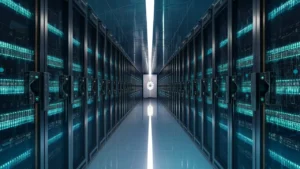Enterprise Resource Planning (ERP) systems have revolutionized various industries by integrating core business processes into a unified platform. In the hospitality sector, these systems are crucial for smoothly managing resources, operations, and customer service. Leveraging tools like Casino Accounting Software can streamline operations, offering a competitive edge. These advanced technologies blend multiple aspects of management into one cohesive system, which is vital for the dynamic nature of the hospitality industry.
Benefits of ERP in Hospitality
Adopting ERP systems in hospitality offers numerous benefits, from streamlining operations to improving data accuracy, which are essential for decision-making. These systems lead to enhanced efficiency, reduced operational costs, and increased customer satisfaction. ERP systems promote better communication and collaboration among staff members by offering a unified platform for various departments.
Efficiency and Productivity
One of the ERP systems’ most significant advantages is the increase in operational efficiency. By eliminating the need for human input, automated systems minimize errors and expedite tasks. This increases output and frees up employees to work on other important duties like guest services and strategy planning. Managers can swiftly make well-informed decisions and improve the entire guest experience with real-time data access.
Cost Savings
ERP systems also contribute to substantial cost savings. By integrating various functions into a single platform, businesses reduce the need for multiple software subscriptions and the associated maintenance costs. Furthermore, improved accuracy in resource management minimizes wastage, contributing to overall cost efficiency. These savings can be redirected towards improving guest services and upgrading facilities, further enhancing the customer experience.
Key Features of Hospitality ERP
Hospitality ERP systems come equipped with various features tailored to the industry’s needs. These features include inventory management, reservation systems, financial accounting, and customer relationship management (CRM). Each component is pivotal for smooth day-to-day operations and long-term strategic planning.
Inventory Management
Proper inventory management is essential in the hospitality sector, where demand can fluctuate rapidly. ERP systems offer real-time tracking and inventory monitoring, ensuring that supplies are adequately stocked and reducing the risk of shortages or overstocking. Automated reordering processes can also ensure that popular items are never out of stock, enhancing customer satisfaction and operational efficiency.
Reservation Systems
An advanced reservation system integrated with ERP allows for seamless booking processes, enhancing the guest experience. It facilitates more effective reservation management and offers useful information that can be utilized to estimate demand and enhance services. Features such as dynamic pricing and personalized offers can also be integrated, driving higher occupancy rates and revenue.
Financial Accounting
ERP systems offer robust financial accounting features, helping hospitality businesses manage their finances more effectively. Real-time financial reporting and analytics aid in making informed business decisions and maintaining fiscal health. This transparency is crucial for financial planning, compliance, and forecasting, enabling businesses to allocate resources more effectively and plan for future growth.
Implementing ERP in Hospitality
Implementing ERP systems involves several steps, including selecting the right software, planning the rollout, and training staff. It’s crucial to customize the ERP solution to meet specific needs and to ensure that the transition does not disrupt ongoing operations. Detailed planning and phased implementation can significantly enhance the success rate and minimize disruptions.
Selecting the Right Software
Choosing the most suitable ERP software requires a thorough understanding of the specific needs of the hospitality business. Factors such as the size of the operation, existing systems, and budget constraints must be considered. Consulting with IT specialists can provide valuable insights into making an informed choice, ensuring that the selected system aligns with the business’s goals and requirements.
Planning and Rollout
A well-planned rollout minimizes disruptions. This phase includes data migration, system testing, and infrastructure setup. It’s advisable to roll out the system in phases, starting with one department before moving on to others. This approach allows for gradual adaptation and troubleshooting, ensuring a smoother transition and higher user acceptance.
Real-World Case Studies
Several hospitality businesses have successfully implemented ERP systems. For instance, a renowned hotel chain used ERP to integrate its reservation and inventory systems, resulting in a 20% increase in operational efficiency. Another example is a resort that improved its customer service and feedback mechanisms through targeted CRM features. Particular case studies highlight the diverse benefits that ERP systems bring to the hospitality industry, showcasing how they enhance productivity, efficiency, and customer satisfaction.
Conclusion
ERP systems play an indispensable role in modernizing and optimizing hospitality operations. They facilitate better resource management, improve customer relations, and enhance overall efficiency. As the industry evolves, adopting advanced ERP solutions can provide a competitive edge and promote sustained growth. By integrating various functions into a unified platform, hospitality businesses can enhance their operational efficiency, deliver superior guest experiences, and achieve long-term success.









